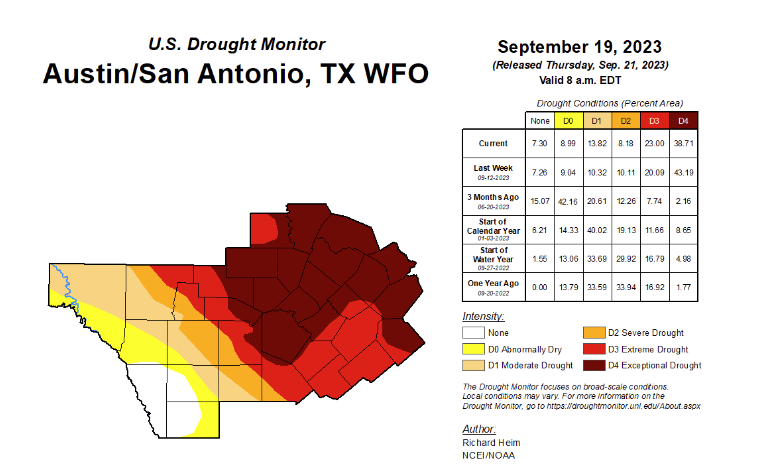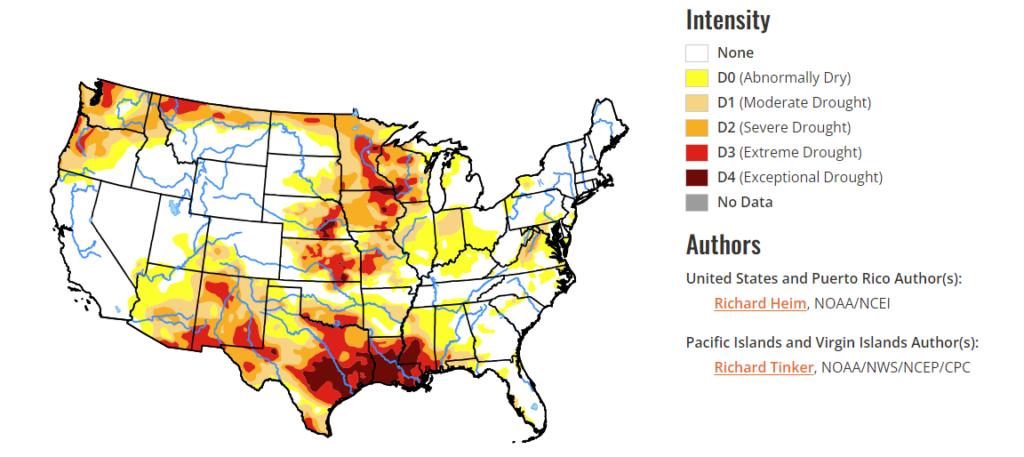By Tim Loftus, General Manager of the Barton Springs/Edwards Aquifer Conservation District
For the second year in a row, low flow in the Mississippi River is causing problems. Thanks to a lack of rainfall in the upper watershed, a saltwater wedge is moving upriver from the Gulf of Mexico and shutting down small water treatment plants along the way. The migrating salt wedge threatens New Orleans’ river-based water supply by late October and prompts the Army Corps of Engineers to take extraordinary measures to protect the supply and associated infrastructure despite being 95 miles north of the river’s mouth at the Gulf.
Seattle Public Utilities is calling upon their 1.5 million customers to increase conservation as their mountain reservoirs haven’t received the rain they need to ensure a reliable water supply. Throughout the drought-stricken Pacific Northwest, wildfires rage due to a widespread lack of rain. As the season’s first atmospheric river slams the region and promises some relief, concerns will quickly turn to flooding and mudslides where too much rain meets the burn scars left by fires. Will their upcoming rainy season be normal?
The New York Times recently conducted a national-scale analysis of groundwater depletion, and reported troubling results: nearly half of the well sites examined have significantly declined since 1980. Withdrawals have exceeded natural recharge. Arizona officials are revisiting their water use and related laws and recently restricted future homebuilding in Phoenix due to lack of groundwater.
Here in Central Texas, and throughout the District territory, we’re soon to enter our 16th consecutive month of drought. Water levels in our aquifers continue to decline, and we brace for a potential Stage IV Exceptional Drought declaration if we don’t receive substantial rain in the days or weeks ahead. And yet there’s another nearby new development that has carpeted patches of soil with turf grass and turned on new irrigation sprinklers as if water was in infinite supply.
While we wait for rain and more commonsense and locally appropriate landscaping to take root to accompany the relentless growth, the need to reduce, reuse, and conserve water becomes ever more urgent. Collective action is our primary defense. Let’s all do what we can. It’s no fun to be without water.


